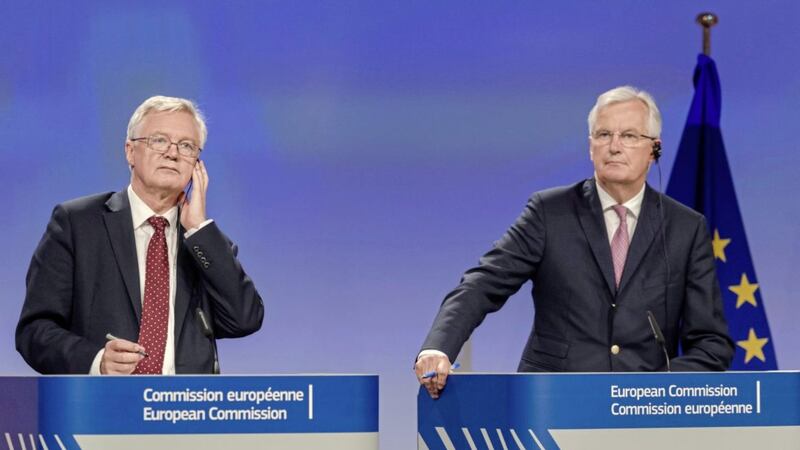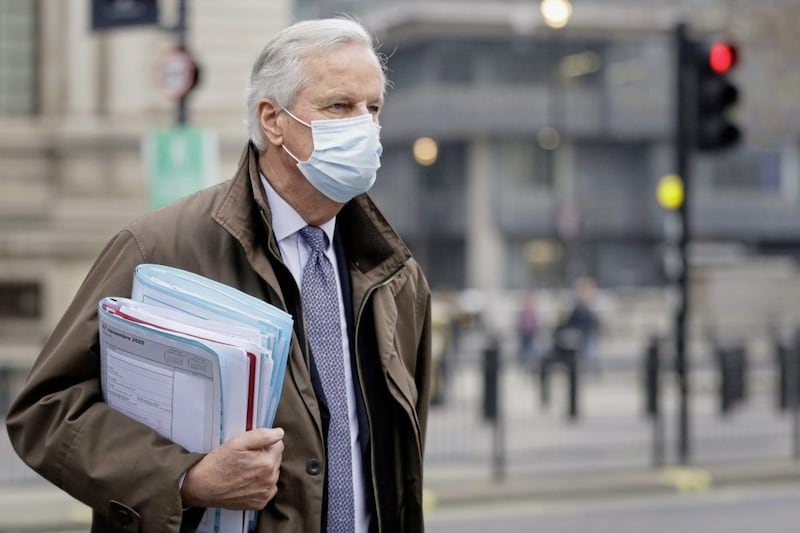"FLEXIBLE and imaginative solutions" will be needed to address the impact of Brexit on the north and Republic, a senior British cabinet minister has said as the EU insisted more work needed to be done to resolve the issue.
The European Union's chief negotiator Michel Barnier said the British Government had to clarify how the common travel area between the Republic and UK would be maintained and also raised concerns about the impact of Brexit on the Good Friday Agreement.
Speaking at a joint press conference in Brussels at the conclusion of four days of talks yesterday, he said: "We agree that the important issue of the Good Friday Agreement between Ireland and the UK, in all its dimensions requires more detailed discussions".
"In particular, more work needs to be done to protect North-South co-operation between Ireland and Northern Ireland," he said.
"Today, that co-operation is embedded in the common framework of EU law and EU policies.
"We need to better understand how the UK intends ensuring the continuation of this co-operation after Brexit.
"We also agree that the UK should clarify in the next session how it intends maintaining the common travel area after leaving the EU."
The UK's Brexit secretary David Davis said the UK and EU were committed to maintaining the 1998 agreement.
"Both sides remain committed to the Good Friday Agreement and achieving flexible and imaginative solutions to address unique circumstances around the border and particularly on the North-South dimension of the agreement," he said.
"These include the mechanisms we have discussed to preserve the common travel area and the rights associated with it, rights laid down, of course, in a British Act of Parliament as well as, in part at least, in the Amsterdam treaty."
Mr Davis also insisted the Tories' deal with the DUP at Westminster would not affect the government's role in attempts to restore power-sharing in the north.
"The British Government continues to take incredibly seriously its requirement for impartiality irrespective of any deal of any sort," he said.
The Republic's foreign affairs minister Simon Coveney said he was "satisfied with the direction of the discussions" but called for more work on protecting North-South co-operation.
"The specific question of the border was not part of this week's round of negotiations, and was never intended to be," he said.
"However, the focus this week on protecting the gains of the peace process and the Good Friday Agreement in all its parts is of course directly relevant to the crucial objective of avoiding a hard border".
This week's talks ended with "fundamental" disagreements remaining between Britain and the EU on citizens' rights and a stand-off over how much the UK will have to pay after it leaves the bloc.
Questions remain over how, post-Brexit, the UK will carry out criminal record checks on EU nationals who apply for settled status; the movement rights of British expats and healthcare costs for British citizens holidaying in the EU.
Further details about the UK's 'divorce bill' will be needed before talks can move on to a trade deal, Mr Barnier indicated.
"As soon as the UK is ready to clarify the nature of its commitments, we will be prepared to discuss this with the British negotiators," he said.








